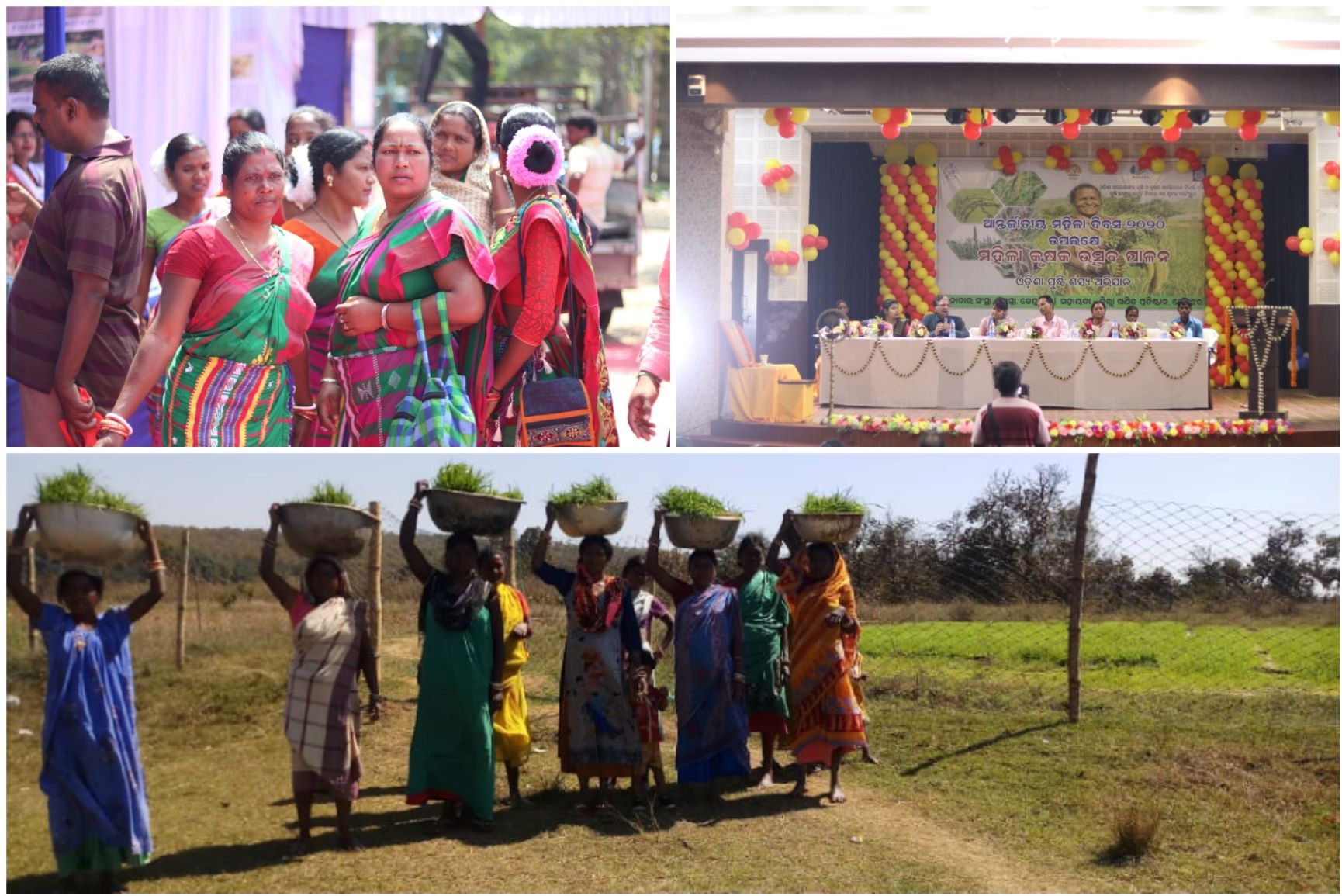Submitted by Sarah Bailey on Wed, 15/04/2020 - 13:36
The contribution of women farmers is no less than that of men, but quite often overlooked. The Odisha Millets Mission is demonstrating an ingenious way of celebrating and valuing the role of women farmers as agents of agrarian change. Dr Rekha Bhangaonkar of Flagship Project 6 recently experienced these celebrations first-hand. Here, she summarises her time in Odisha.
A usual 8 March would have meant exchanging International Women’s Day greetings online. But, this year, whilst undertaking field work for TIGR2ESS, I got the opportunity to be a part of Mahila Krushak Ustav (Women Farmers’ Festival) - an event which brought together more than 200 female farmers from different tribal communities and celebrated their success in embracing cultivation of the forgotten crop of millets. Almost a quarter of Odisha's population is tribal – the state is also home to roughly 10% of the tribal population of India.
This vibrant gathering was organized by the state government of Odisha under its key programme for millets revival – the Odisha Millets Mission (OMM). While there are many laudable features of this well-crafted policy, the event showcased an ingenious way of engaging the OMM programme with its women farmers.
Celebrating women farmers
Both men and women contribute to the agricultural sector and their roles mostly complement each other, but very rarely are policies sensitive to the gendered roles in labour. In India, agricultural land holding is typically in the name of the male members of a family, creating a context where women cannot easily be an agent of agricultural change. This effort by OMM to felicitate women farmers is certainly bucking the trend!
At the Women Farmers’ Festival, many tribal women farmers came up to the stage and proudly shared their experience of cultivating millets and helping many more farmers to do same. One of the farmers, despite not figuring in the list of awardees, expressed her interest in sharing her experience. She described how she had gathered information on OMM from a pamphlet and subsequently reached out to the programme. Consequently, many from her village were able to enjoy the benefits of OMM.
Reviving millets
Millets have long been a part of the traditional diet of the community in Odisha, however it was most often consumed as a thin gruel, insufficient to provide its full nutritional benefits. Millets also suffered from ignominious social status as a crop of the underprivileged; it is considered to be poor man’s food - the rich eat rice and wheat!
The food festival was a platform to inform the community of the plentiful variety of savoury dishes that can be prepared using millets. NGOs, the on-the-ground partners of the programme, promoted new recipes using pamphlets and cook books and even offered training to women farmers to encourage healthier consumption of millets. Knowing a millet recipe became a skill and knowing the recipe for every variety of millet, a Unique Selling Point!
Millets are good for you
The tribal population is particularly vulnerable to poor nutritional status. One of the primary goals of OMM is therefore to encourage millet cultivation among them for self-consumption. Millet is rich in calcium, iron and many micro-nutrients. Eating this nutritious grain aids digestive health, bone health and lowers blood sugar levels.
At the event, one of the speakers described at length the health benefits of eating millet and highlighted how women, pregnant and lactating mothers, and children in the community can benefit from it. He also emphasised the virtue of growing these crops in an organic manner to gain more from it.
Farmers’ Clubs are strengthening communities
The festival was a happy congregation of women farmers. Farmers dressed in their best attire, some in their traditional saris, sharing their experience, learning from each other, travelling as a team to the world outside of their village and receiving recognition for the work they do. They were a successful team!
Such events are an effective direct engagement with the farming community and more of these will generate and strengthen farmer networks; some of them potentially evolving into organised entities – Farmers’ Clubs. Plaudits to OMM for initiating such opportunities.
Dr Rekha Bhangaonkar is a Post-doctoral Research Associate for TIGR2ESS, working at the Department of Land Economy, University of Cambridge.

